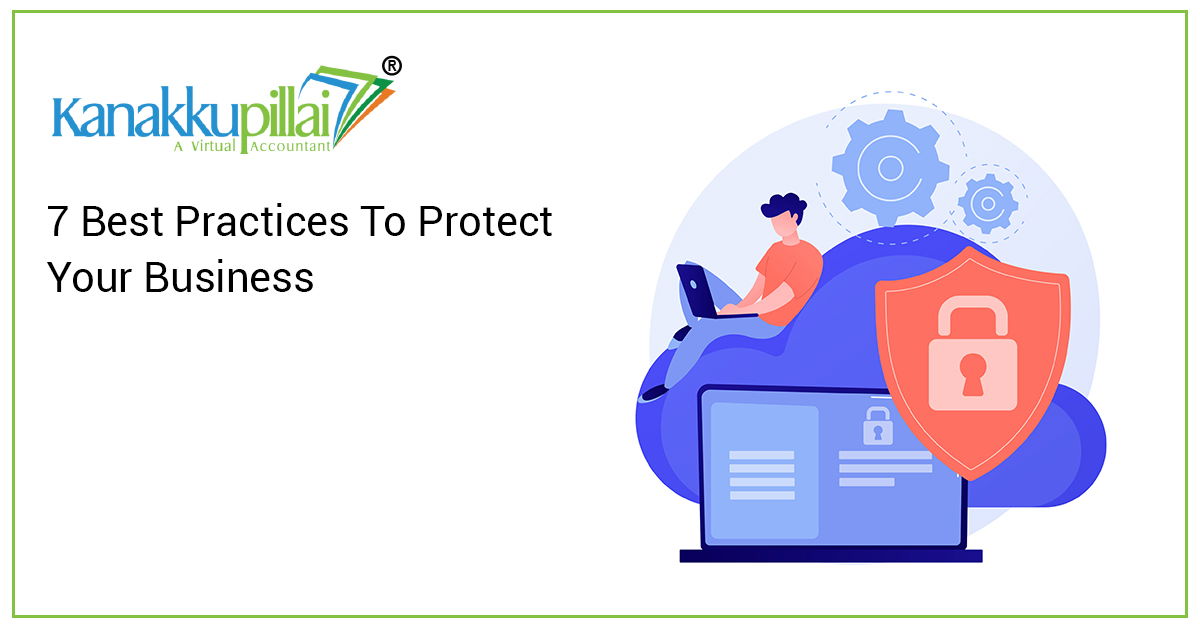![]()
7 Best Practices To Protect Your Business in 2022
The business owner should probably realize that operating and owning a business can be fraught with pitfalls and risks. Turning a profit isn’t enough; you must also protect your business from claims and lawsuits. Debts and mortgage obligations to third parties and vendors, claims for damages caused by your employees, product or professional liability, and consumer-protection issues are just some of the risks you must deal with. If handled improperly, these risks could result in the loss of both business and personal assets. Knowing what risks you face and how to minimize or avoid them gives you the chance to run your business successfully. Here are seven best practices you can take now to protect your business.
- Choose the right location
- Secure your physical store
- Create a strong brand
- Get business insurance
- Protect your employees
- Pay for security cameras, monitoring, and alarms
- Clearly display your terms and conditions
1. Choose the right location
One of the best things you can do is choose the right location from the outset. Before deciding to buy or lease a given space, do some research to learn the crime rates in the area; steer clear of areas that tend to be high in violent crime or robberies.
It would help if you also looked at the layout and location of the building. Generally, the more visible a building is, the less susceptible it is to burglaries and other crimes. Don’t make it easy for thieves and other criminals to target you.
2. Secure your physical store
Investing in top-notch security solutions for your storefront can help you rest easy about break-ins and theft. First and foremost, you need an alarm system. The best type of alarm system varies widely from business to business (a high-end jewelry store probably needs a different kind of alarm than a coffee shop), so it’s wise to do your research. Most reputable alarm system providers will come out to your site to do an assessment before recommending an option. So shop around and make sure to get a solution you’re comfortable with. To thwart theft, security cameras are also a good idea.
3. Create a strong brand
Your brand is about what your company stands for, and can include unique features (such as logo, colors, names, designs) that make your business stand out to customers. It’s important to think about what your business stands for, and what its values are. Is it fun and engaging, is your product of a high quality, or do you provide great customer service? Your brand allows you to communicate these values. When a customer identifies with your values, brand loyalty is created and customers become repeat purchasers from your business. A strong brand is an effective way to protect your business from the competition, and can help you to command a higher price for your product or service.
4. Get business insurance
Want to truly protect your business? Then it’s worth your while to get business insurance. Depending on the policy you buy, it can help protect you in the event of an accident, injury, property damage, and more.
General liability insurance (GL) can help cover the costs if a customer or vendor gets injured at your business, or if you accidentally damage a customer’s property while doing work for them. For example, if you’re working on a customer’s siding on their home and you accidentally damage trim on a window, your policy could pay to replace the trim.
Meanwhile, professional liability insurance is especially helpful for businesses who sell services. It can help cover you if a client accuses you or one of your employees of negligence while providing your services.
5. Protect your employees
Disaster can strike any time, so it’s important to have a disaster plan for what you will do in case of emergency to protect your business. Create a plan and assign responsibilities for how to get employees and customers out of the building safely, what to do if a disaster keeps you and employees from getting to your business, and how you will keep running even if you can’t get to your location. Learn more about creating an emergency disaster plan.
6. Pay for security cameras, monitoring, and alarms
If you want to take the next step and enhance your business’s physical security further, consider investing in security cameras and ongoing monitoring. You can also set up an alarm system that notifies a security company if your store is being broken into
7. Clearly display your terms and conditions
It’s important that your website displays the terms of how you operate and what is involved. When customers purchase your product or service, they are entering into a contract with you, so it’s important that you clearly detail how you do business. From your payment information to returns, make the language easy to follow and understand so your customers feel the business is user-friendly. This will also help you build a strong customer relationship.




